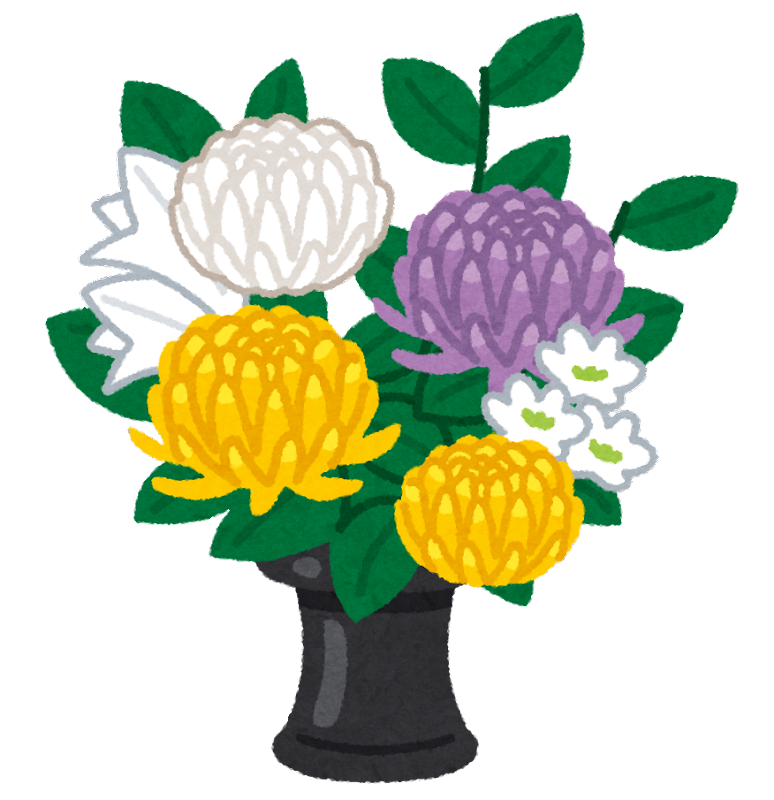In Japanese Buddhist tradition, offering flowers to the deceased is more than a gesture of remembrance—it’s an expression of respect, gratitude, and spiritual connection. Each flower carries a unique meaning rooted in centuries of symbolism, aligning with the values of purity, enlightenment, and eternal love.
Let’s explore the common flowers offered at graves and altars in Japan, and the deeper meanings behind this sacred custom.
Common Flowers Used in Offerings
1. Chrysanthemum (菊 / Kiku)
A timeless symbol of Japanese funerary culture, the chrysanthemum is often placed on graves and Buddhist altars. Its flower language conveys:
- Nobility
- Eternity
- Loftiness
As an autumn flower, chrysanthemums are especially associated with the Higan and Obon seasons, when many people visit ancestral graves. Their longevity and solemn beauty make them ideal for expressing quiet reverence toward those who have passed.
2. Lotus (蓮 / Hasu)
The lotus is one of the most important symbols in Buddhism, representing spiritual purity and enlightenment. Growing from mud and blooming clean and beautiful, the lotus illustrates the Buddhist journey from earthly attachment to awakening.
In the language of flowers, it stands for:
- Purity
- Divine beauty
- Detachment from suffering
Lotus motifs frequently appear in Buddhist art and are often used in memorial services for their profound spiritual meaning.
3. Lily (百合 / Yuri)
With their graceful petals and pristine white color, lilies are another popular choice for honoring the dead. They are known for symbolizing:
- Purity
- Majesty
- Eternal love
Lilies convey a sense of serene dignity and are often chosen when remembering a loved one whose presence was gentle, strong, or cherished.
4. Carnation
While commonly associated with Mother’s Day, carnations also appear in Buddhist offerings, particularly during memorials for mothers. A red carnation represents:
- A mother’s love
- Affection
- Devotion
Their soft appearance and heartfelt symbolism make carnations a touching tribute in both personal and ceremonial contexts.
The Origins of Flower Offerings in Japan
The tradition of offering flowers to the deceased arrived in Japan alongside Buddhism, likely during the Asuka or Nara periods (6th–8th centuries). Early records suggest that flowers were placed before Buddhist altars as symbols of impermanence, beauty, and reverence.
By the Heian period (794–1185), the practice had spread among the nobility and gradually became a widespread custom across all social classes.
In Buddhist belief, flowers are seen as offerings that:
- Praise the virtues of the deceased
- Purify the heart of the giver
- Serve as a bridge between the living and the spiritual realm
The scent and beauty of the flowers act as a form of silent prayer—ephemeral yet deeply meaningful.
Conclusion: A Gesture of Gratitude and Remembrance
When you offer flowers at a grave or altar in Japan, you’re not just placing a decoration—you’re participating in a timeless spiritual practice that honors life, impermanence, and connection.
Whether it’s a chrysanthemum for dignity, a lotus for enlightenment, a lily for eternal love, or a carnation for maternal affection, each flower tells a story. By understanding these meanings, your offering becomes not only a symbol of mourning but also a celebration of memory and a gesture of deep, enduring respect.


